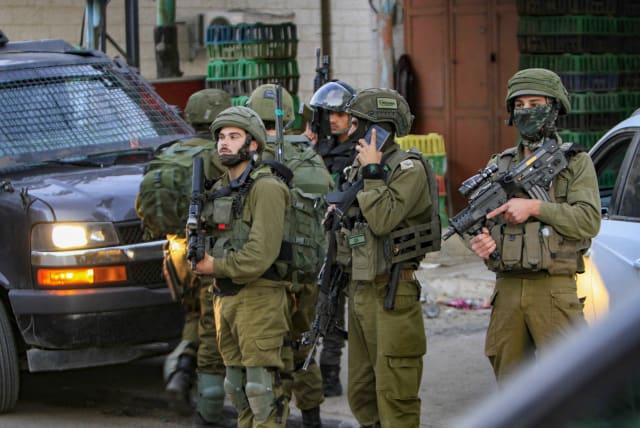Israelis and Palestinians won't achieve peace through vigilante attacks - editorial

Israeli and Palestinian representatives met in Aqaba, Jordan in the hopes of reaching a level of understanding with each one another.
The juxtaposition of the two events projected everything that needs to be said about the eternal struggle between Israelis and Palestinians over the Land of Israel.
On Sunday, representatives from Israel and the Palestinian Authority met in the Jordanian city of Aqaba under the sponsorship of the US, Jordan, and Egypt. Their goal: to arrive at understandings and a level of cooperation to halt the escalating Israeli-Palestinian violence, and to prevent an even sharper outbreak during the month of Ramadan that begins on March 22.
A joint communique put out by the five governments after the summit stated that Israel and the PA “confirmed their joint readiness and commitment to immediately work to end unilateral measures for a period of 3-6 months.” It added, “This includes an Israeli commitment to stop discussion of any new settlement units for four months and to stop authorization of any outposts for six months.”
At the same time as that civil and potentially productive meeting was taking place, back in the heartland of the ongoing conflict between Israelis and Palestinians, all hell was breaking loose in the form of an endless cause and effect circle that reflects the impotency of diplomatic efforts in the face of brazen terrorism on the Palestinian side and extremism on the Israeli side.
As is their wont, whenever it appears that reasonable voices are gathering to try to defuse the volatile atmosphere that has seen deadly terror attacks scar Israel over the last month in ominous echoes of the Second Intifada, a Palestinian gunman immediately decided to take matters into his own hands.
When is retaliation considered "too much"?
According to the IDF, the terrorist opened fire in broad daylight from close range at an Israeli-owned car driving past the Palestinian town of Huwara on Route 60, deep in the northern West Bank, killing brothers Hallel Yaniv, 21 and Yagel Yaniv, 19, residents of nearby Har Bracha.
They’re only the latest victims of terror who were murdered simply because they were Israeli. Before the impact of the atrocity could be fully comprehended, however, a large group of settlers converged on Huwara and, in what can only be labeled as a pogrom, set alight dozens of vehicles and homes in the village.
The rampage lasted for hours until Israeli security forces restored order, but not before one death and a number of injuries were reported in addition to the massive damage in the village.
The onslaught was the worst case of “price tag” retaliation that most people could remember. Some responses, including that of Palestinian Authority President Mahmoud Abbas, attributed the harshness of the revenge attacks to the positions of the more extreme members of the government, including National Security Minister Itamar Ben-Gvir.
Ben-Gvir was slow in condemning the settler attack. However his Otzma Yehudit Knesset colleague Zvika Fogel – a former IDF general – praised the Jewish attackers, saying, “Huwara is closed and burnt. That is what I want to see. Only this way can we obtain deterrence.”
Both Prime Minister Benjamin Netanyahu and Defense Minister Yoav Gallant called on Israelis not to take the law into their own hands, stressing that the riots harmed the operations of security forces who were hunting for the terrorist who carried out the attack.
But their reasoned voices are not enough. The government must act as one body in grave times like this. With ministers like Ben-Gvir and Finance Minister Bezalel Smotrich – who called on the Israeli delegation in Aqaba to return to Israel immediately after the attack – giving their quiet support for vigilante attacks or at best, turned a blind eye to them – Israel appears to be losing its sense of right and wrong.
When there should have been national unity in mourning the deaths of the Yaniv brothers on Sunday, extremists hijacked the day with their illegal and deadly acts. The government, as one voice, must unequivocally condemn their acts and take measures to ensure that such vigilantism does not take place.
If that can’t happen, Netanyahu should draw the necessary conclusions and fire the ministers who side with the extremists who are doing untold damage to this country and its moral fiber.
